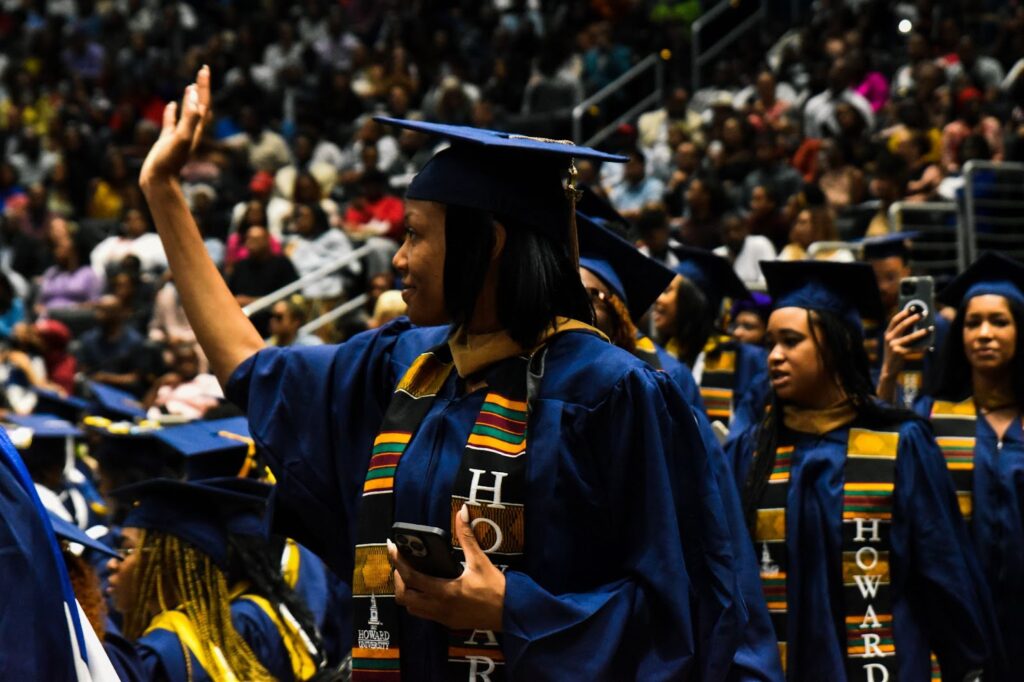
As graduating students prepare to walk the stage, seniors reflected on their freshman year at Howard, during the pandemic, which meant a solely online curriculum. According to the Society for Human Resources (SHRM), the pandemic impacted workplace hiring strategies, the setting of most jobs and students’ pursuit of finding a job.
“The pandemic definitely made me feel less social. I believe being locked in the house for two years affected how I approached people,” Shaniyah Miller, a Howard University alumna from the Bronx, New York, said.
“Returning to traditional schooling after the pandemic, I had trouble connecting to my campus, peers and professors,” Miller said.
According to the National Library of Medicine (NCBI), the pandemic increased social isolation, resulting in students’ decline in mental health. Additionally, the pressures of adapting to an online environment, tuition hikes due to inflation and the burden of depression led to millions of students deciding to drop out of college.
“For those who have spent a lot of time not in the classroom, obviously social isolation can discourage interacting with clubs, organizations and networking,” Dr. Gerald Daniels, an associate professor of economics said.
“So the main concern is you don’t get to network with your classmates,” Daniels continued.
During the pandemic, the labor market experienced an unprecedented blow with employment decreasing by 20.5 million jobs. Presently, the workplace has appeared to rebound, with more online/hybrid job positions available, an unemployment rate of 3.6 percent and worker adoption.
“Applying for jobs is always hard. It’s honestly all about building connections and relationships with people,” Melanie Thomas, a senior international affairs major from Stafford, Virginia, said. “I’m not too stressed. I can’t say I blame COVID-19 for any of that though, at least not entirely.”
“In fact, in many ways, I prefer the ‘new normal’ post-pandemic workforce because of the increased access to jobs now,” Thomas said.
A University of Connecticut report says that universities should modify how they support and manage students due to the challenges exacerbated by the pandemic.
The report suggests that colleges should boost their mental health services, implement diversity initiatives to ensure all students feel represented and offer more mentoring programs to help students regain confidence in the wake of the pandemic.
As of now, some Howard students are preparing to walk the stage with job offers, while others don’t know what their post-graduation plans look like.
“I am going back to Florida, [and] all of my jobs before college sucked and were soul-draining,” Keaina Brantley, a senior Afro-American studies major from Orlando, Florida, said.
“I am not super excited about going back to work but at least I can expect to not earn a minimum wage,” Brantley said.
A U.S. Bureau of Labor Statistics analysis indicates that bachelor’s degree holders earn about 68 percent more on a weekly basis than those with just a high school diploma.
Georgetown’s Center on Education and the Workforce also found that U.S. citizens with a bachelor’s degree earn a median of 75 percent more income throughout their careers than high school graduates.
Daniels offered advice for students who are entering the workforce and beginning their careers.
“[Students] should try to get an internship early in their career. They should try to find companies that they’d be willing to work for beyond eight weeks or six months,” Daniels said. “It is never too early to apply for a job when students are in their final year of studies because sometimes people get hired in the fall and have a job ready for them by the time they graduate.”
Copy edited by D’ara Campbell

